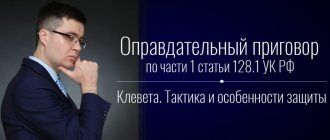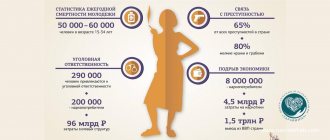ST 230 of the Criminal Code of the Russian Federation.
1. Inducement to consume narcotic drugs, psychotropic substances or their analogues -
shall be punishable by restriction of freedom for a term of up to three years, or arrest for a term of up to six months, or imprisonment for a term of three to five years.
2. The same act committed:
a) by a group of persons by prior conspiracy or an organized group;
b) has become invalid;
c) in relation to two or more persons;
d) with the use of violence or the threat of its use;
e) using information and telecommunication networks (including the Internet), -
shall be punishable by imprisonment for a term of five to ten years, with or without restriction of freedom for a term of up to two years.
3. Acts provided for in parts one or two of this article, if they:
a) committed against a minor;
b) caused by negligence the death of the victim or other grave consequences, -
shall be punishable by imprisonment for a term of ten to fifteen years with deprivation of the right to hold certain positions or engage in certain activities for a term of up to twenty years or without it and with restriction of freedom for a term of up to two years or without it.
4. Acts provided for in parts one, two, paragraph “a” of part three of this article, if they negligently resulted in the death of two or more victims -
shall be punishable by imprisonment for a term of twelve to fifteen years with deprivation of the right to hold certain positions or engage in certain activities for a term of up to twenty years or without it and with restriction of freedom for a term of up to two years or without it.
Note. This article does not apply to cases of promoting the use of relevant instruments and equipment used for the consumption of narcotic drugs and psychotropic substances for the prevention of HIV infection and other dangerous infectious diseases, if these acts were carried out in agreement with executive authorities in the field of health care and internal affairs bodies business
Corpus delicti
The objective side of the act is inducing other people to use drugs. The social danger of such an offense lies in expanding the circle of citizens who consume psychotropic substances and promoting the drugs themselves.
Inducing citizens to use means any deliberate actions that are aimed at arousing their desire to consume such substances.
It can be:
- persuasion;
- giving advice;
- deception;
- psychological violence, etc.
Reference . Inducing teenagers and children to use drugs is the commission of the above actions in relation to persons who have not yet reached the age of 18.
The subjective side is direct intent, that is, the person not only understands that he is committing a crime by inducing another person to use drugs, but also wants it.
The corpus delicti under Article 230 of the Criminal Code of the Russian Federation is formal, that is, it will be completed at the moment when the citizen begins to encourage another person to try drugs.
Objects and subjects
The object of the act is social relations that ensure the health of citizens and their morality. Additional objects include the life and health of individuals when irreparable harm is caused to them, as well as the full development of the younger generation.
The subject of the offense is a sane person who was already 16 years old at the time of the crime.
Single-multiplicity of declination
When qualifying a crime, it does not play a special role how many times one person encouraged another to use drugs.
Attention . To detect criminal motives in a citizen’s actions, it is enough if he at least once suggested that someone try illegal drugs.
If this happened several times, but without the aggravating circumstances listed in Part 2 and Part 3 of Article 230 of the Criminal Code of the Russian Federation, then the act will be determined according to Part 1.
Material elements of the crime
It is provided only in paragraph “b”, part 3, article 230 of the Criminal Code of the Russian Federation. Other serious consequences include:
- causing serious harm to human health;
- HIV infection;
- suicide of a person or attempt to commit it;
- development of severe drug addiction/mental disorder in a person;
- termination of pregnancy, etc.
The essence of Article 230.1 of the Criminal Code of the Russian Federation and comments to it
It is dedicated to the crime of inducing an athlete to use substances or methods prohibited in sports. The article consists of three parts and two notes.
Its first part lists penalties for the fact that an athlete is suggested by his coaches or sports medicine specialists to use any illegal substances or methods, unless otherwise provided under Article 230 of the Criminal Code of the Russian Federation.
Under Part 2 of the same article, penalties are imposed in cases where the same act was committed with the following aggravating circumstances:
- by a group of citizens according to a pre-agreed plan;
- in relation to a teenager or child who plays sports, or several persons at once;
- using blackmail/violence or its threat.
According to Part 3 of Article 230 of the Criminal Code of the Russian Federation, penalties are determined for the same offenses if they entailed the death of an athlete through negligence or other serious consequences (causing serious harm to his health, the development of severe drug addiction, etc.).
The first note clarifies that inducing an athlete to use substances is any intentional act that promotes the use of various prohibited substances by an athlete.
These include:
- deception;
- persuasion/giving advice or direction;
- providing information, etc.
The second note states that the full list of substances prohibited for use is approved by the Government of the Russian Federation. These are various steroids, metabolites, isomers, hormones, growth factors, etc.
Everything about criminal cases
Go to the Criminal Code
Url Additional information:
Part
I
(3 - 5 years)
- Part 1 230 of the Criminal Code
inclination to use drugs
Part
II
(5 - 10 years)
- Part 2 230 of the Criminal Code
:
- clause "a" part 2 230 of the Criminal Code
by a group of persons by prior conspiracy
- clause "c" part 2 230 of the Criminal Code
against two or more persons
- clause "g" part 2 230 of the Criminal Code
with violence
- clause "d" part 2 230 of the Criminal Code
using the Internet
Part
III
(10 - 15 years)
- Part 3 230 of the Criminal Code
:
- clause "a" part 3 230 of the Criminal Code
in relation to a minor
- clause "b" part 3 230 of the Criminal Code
resulting in the death of the victim
Part
IV
(12 - 15 years)
- part 4 230 of the Criminal Code
resulting in the death of two persons
Note
— note
does not apply to propaganda for the purpose of prevention
Plenum of the Supreme Court
Plenum
on practice in drug cases dated June 15, 2006. N 14
Article 230 of the Criminal Code. Inclination to use drugs
Url Additional information:
- P.27
Plenum No. 14 actions interpreted as declination
- paragraph 27
Plenum No. 14, the composition of the declination is completed before use
- paragraph 27
Plenum N 14 combination of declination with
228
,
228.1
or
229 of the Criminal Code
- clause 32
Plenum No. 14 set of den
232
with
228.1
and
230 of the Criminal Code
1) Inducement to use narcotic drugs,
punishable:
| 1 | restriction of freedom | up to 3 years |
| 2 | arrest | up to 6 months |
| 3 | imprisonment + with deprivation of rights for up to 3 years (or without) | 35 years |
2) The same act committed:
a) by a group of persons by prior conspiracy, or an organized group;
b) has become invalid.
c) in relation to two or more persons;
d) with the use of violence or the threat of its use;
e) using information and telecommunication networks (including the Internet),
punishable:
| imprisonment + with restriction of freedom up to 2 years (or without) | 5 – 10 years |
3) Acts provided for in Part 1, Part 2 of this article, if they:
a) committed against a minor;
Url Additional information:
- paragraph 28
Plenum No. 14, the death of the victim is fully covered by
Part 3 230 of the Criminal Code
b) negligently caused the death of the victim,
Url Additional information:
- paragraph 28
Plenum No. 14 other grave consequences of declination
- or other serious consequences,
punishable:
| imprisonment + with restriction of freedom up to 2 years + with deprivation of rights for up to 20 years (or without) | 10 - 15 years |
4) Acts provided for in Part 1 , Part 2 , Clause “a”, Part 3
of this article, if they negligently resulted in the death of two or more victims,
are punishable:
| imprisonment + with restriction of freedom up to 2 years + with deprivation of rights for up to 20 years (or without) | 12 – 15 years |
Note. This article does not apply to cases of promoting the use of relevant instruments and equipment used for the consumption of narcotic drugs for the prevention of HIV infection and other dangerous infectious diseases, if these acts were carried out in agreement with executive authorities in the field of health care and trafficking control authorities narcotic drugs and psychotropic substances.
Return to the Criminal Code
Seek advice
The essence of Article 230.2 of the Criminal Code of the Russian Federation and comments to it
In essence, it is similar to the previous one, but there are also differences. According to Article 230.2 of the Criminal Code of the Russian Federation, penalties are imposed in cases where an athlete has used prohibited substances or used illegal methods in sports without his informed consent.
Part 1 lists penalties for inducing an athlete, without his consent, to use prohibited substances or methods by his coach or physician, if this is contrary to anti-doping rules.
According to Part 2 of Article 230 of the Criminal Code of the Russian Federation, penalties are imposed for the same act if its result was the death of an athlete or other serious consequences (causing serious damage to his health, etc.).
The note to the article states that its effect does not apply to cases described in Article 228-228.4 (storage, sale, purchase and other illegal actions with drugs) and Article 234 (illegal trafficking of toxic substances) of the Criminal Code of the Russian Federation.
Liability measures by article
Let us consider the types of punishments that are prescribed for each of the mentioned articles.
Art. 230 of the Criminal Code of the Russian Federation
If the crime was determined by its first part, then the sentences under Part 1 of Article 230 of the Criminal Code of the Russian Federation may be as follows:
- restriction of a person’s movements for 3 years;
- arrest for six months;
- imprisonment for 3-5 years.
When determining it under Part 2 of Article 230 of the Criminal Code of the Russian Federation, imprisonment for 5-10 years with restriction of a person’s freedom for 2 years is determined.
If the act is qualified under Part 3 of Article 230 of the Criminal Code of the Russian Federation, imprisonment for 10-15 years is imposed with a ban on holding certain types of positions for 20 years or with restriction of a person’s movements for 2 years (the last two sanctions are imposed at the discretion of the judge) .
Art. 230.1 of the Criminal Code of the Russian Federation
When determining an act under Part 1 of this article, a fine of at least 300,000 rubles is imposed. or in the amount of six months’ salary with the imposition of a ban on certain types of activities for 3 years or restriction of a person’s movements for a year with the application of the above sanction.
If it was qualified under Part 2 of Article 230.1 of the Criminal Code of the Russian Federation, then the following punishments are imposed:
- fine in the amount of 500,000 rubles. or in the amount of one year’s salary with the imposition of a ban on certain types of professional activities for 4 years (the last sanction is determined at the discretion of the court);
- restriction of a person’s freedom for 2 years with the imposition of the above prohibition;
- imprisonment for a year using the same prohibition.
When determining a crime under Part 3 of Article 230 of the Criminal Code of the Russian Federation, the following measures are taken:
- restriction of a person’s movements for 3 years with a ban on engaging in certain types of activities for 5 years (the latter sanction is applied at the discretion of the judge);
- forced labor for 3 years using the above measure;
- imprisonment for the same period with the same sanction.
Art. 230.2 of the Criminal Code of the Russian Federation
If the offense has been classified under Part 1 of this article, then the following penalties are imposed:
- payment of a fine of up to one million rubles. or in the amount of salary for 2 years, while it is prohibited to hold certain positions for 4 years (the sanction is optional);
- restriction of a person’s movements for 2 years using the above measure;
- imprisonment for a year with the same penalty.
If it is determined under Part 2 of Article 230.2 of the Criminal Code of the Russian Federation, the following measures are taken:
- restriction of a person’s movements for 3 years with a ban on certain types of activities for 5 years;
- forced labor for 3 years with the application of the above sanction;
- imprisonment in a colony for the same period and using the same measure.
In what cases are they charged under the Code of Administrative Offenses of the Russian Federation?
The Code of Administrative Offenses of the Russian Federation has two articles under which they can be held accountable for similar acts:
- Article 6.10 (involvement of adolescents and children in the use of alcohol-containing products and dangerous psychoactive substances);
- Article 6.13 (drug propaganda).
Under these articles of the Code of Administrative Offenses of the Russian Federation, citizens are prosecuted in cases where no elements of crime were found in their actions under Articles 230, 230.1 and 230.2 of the Criminal Code of the Russian Federation.
In what cases are they not held accountable?
Those cases where one person tells another about the supposedly “useful” properties of drugs, but does not offer to use them, do not constitute crimes.
The same thing happens when the citizen did not use any active and deliberate actions to promote drug use.
Judicial practice under Article 230 of the Criminal Code of the Russian Federation
Determination of the Judicial Collegium for Criminal Cases of the Supreme Court of the Russian Federation dated September 25, 2018 N 2-UD18-6
acquitted of charges of committing crimes under Part 2 of Art. 210, part 1 art. 230, paragraph “a”, part 3, art. 228.1, clause “a”, part 3, art. 228.1 of the Criminal Code of the Russian Federation due to the absence of corpus delicti, convicted under Part 1 of Art. , clause “g”, part 3, art. 228.1 of the Criminal Code of the Russian Federation to imprisonment using Art. Criminal Code of the Russian Federation for 4 years,
Determination of the Constitutional Court of the Russian Federation dated December 19, 2017 N 2864-O
ARTICLE 230 OF THE CRIMINAL CODE OF THE RUSSIAN FEDERATION, the Constitutional Court of the Russian Federation composed of Chairman V.D. Zorkin, judges K.V. Aranovsky, A.I. Boytsova, N.S. Bondar, G.A. Gadzhieva, Yu.M. Danilova, L.M. Zharkova, S.M. Kazantseva, S.D. Knyazeva, A.N. Kokotova, L.O. Krasavchikova, S.P. Mavrina, N.V. Melnikova, Yu.D. Rudkina, O.S. Khokhryakova, V.G. Yaroslavtseva,
Determination of the Constitutional Court of the Russian Federation dated June 28, 2018 N 1421-O
Clause 5 of part two of Article 151 of the Code of Criminal Procedure of the Russian Federation became invalid on the basis of Federal Law of July 3, 2016 N 329-FZ “On Amendments to Article 230 of the Criminal Code of the Russian Federation and the Criminal Procedure Code of the Russian Federation”, and the legal relations related to it regulated with the definition of the powers of investigators of the authorities for control over the circulation of narcotic drugs and psychotropic substances, in the case of S.A. Bykanov are completed.







